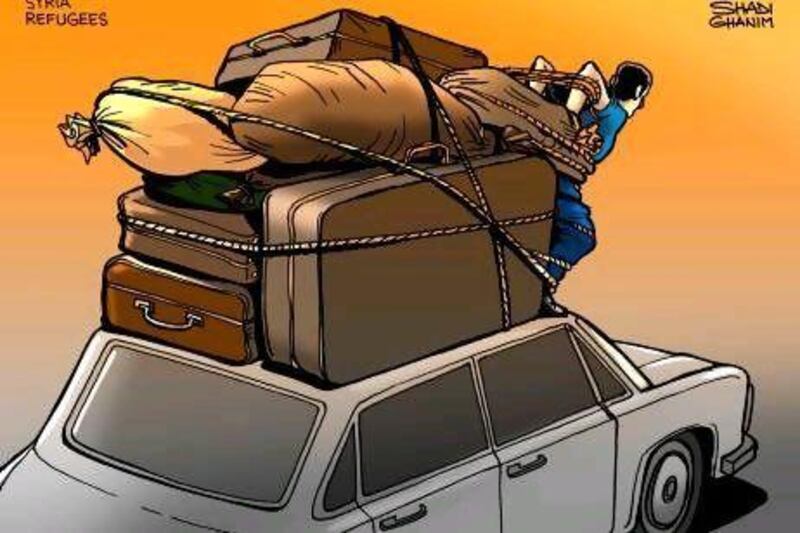"Her father killed her," ran the news in my village in eastern Syria. An underage girl had been shot by her father for having sex with a group of men. She had been lured into sex by one of the men, who later invited his friends to join.
The father found out after the girl's pregnancy started to show. During interrogation by her family, the girl named the men, one by one. Apparently, she was still unaware of the magnitude of her compromised situation; by all accounts, she was walking from one side of the house to the other, oblivious to any danger, when her father ran towards her and pulled the trigger.
The household's verdict had been carried out, but the higher social ruling had yet to come. After the family members "washed" the shame, they were asked to leave the area. Meanwhile, one of the assailants was handed over to the police to be tried - or, rather, to be protected - and the rest were acquitted by the court of public opinion.
It is a story that took place a few years ago, but it underlines how a trend in Syrian society deals with female victims of sexual assault. It is still true today and will be in the foreseeable future despite the enlightened popular revolts across the Arab world.
Every time I hear heartbreaking stories of Syrian women being assaulted by the regime's forces, I am reminded of this story. When the fighting is over, how will society deal with these victims? Will women be accepted back into society?
As the battle for Aleppo rages, more than 2,000 women across Syria have been sexually assaulted by regime forces since the anti-regime uprising started. The troubling fact is that these victims, despite their suffering, also face being judged by society. Will they be rejected by the same people who are fighting to bring down tyranny?
This week, I heard the story of a man who had married one such victim. The man, according to a friend of mine who knows him, was enthusiastic about the marriage amid the euphoria of the uprising. But shortly after the wedding, he relapsed to a traditional frame of reference. He started to blame her for being assaulted. He started thinking: why did the regime's men assault her and not others in the neighbourhood? Did she encourage the men? He abandoned her after a few months.
Calls to recognise the predicament of female victims have been limited to encouraging people to marry them. In one instance, Sheikh Adnan Arour, a hardline Syrian cleric who has become the face of ultra-religious elements within the uprising, issued a fatwa regarding victims of sexual assault. He reassured them that women who had been coerced should not feel guilty. He called on men to marry them and women to "serve" the Free Syrian Army in Sharia-compliant ways.
Such voices fall short of properly recognising female victims, in the same way that men are honoured, reducing women to subordinate roles. Thwaiba Kanafani, a female Syrian-Canadian engineer, recently appeared in a video along with male fighters and said she would join the FSA ranks. The chief of that division - despite daily human tragedies - took the time to issue a lengthy rebuttal of her statement, denying she was in his ranks and saying he did not need women to fight with him.
The predicament is not limited to women who are victims of sexual assault. Female refugees, particularly those displaced without their family members, are often tainted in society's eyes. Regionally, there are already voices that treat these women as damaged goods, somehow less worthy of respect.
During a recent discussion about a rumoured royal decision in Saudi Arabia, which would require authorities to pay wedding expenses for men who married Syrian refugees, a Saudi man commented: "The good things are coming"; those who were worried about paying dowries should wait for the decision, he said, as if Syrian women were commodities.
Social attitudes towards women are rooted in language, and it will take another revolution to change them. In the eyes of our society, woman are "awra", a word that denotes parts of the body that must not be seen by other people, but also implies a weak point that needs protecting. That often means concealment, or "sitr", and preserving one's honour. If a woman is raped, the only way to achieve sitr is concealment through marriage.
Those who have died in the conflict will be honoured as martyrs. Men who suffered at the hands of the regime will go back to their lives as heroes to rebuild their homes. But women will remain stigmatised by the experience.
We have seen this during other conflicts in the region, in which women were the real long-term victims, and will probably see it again in Syria. That is just another ugly fact of war.
On Twitter: @hhassan140





